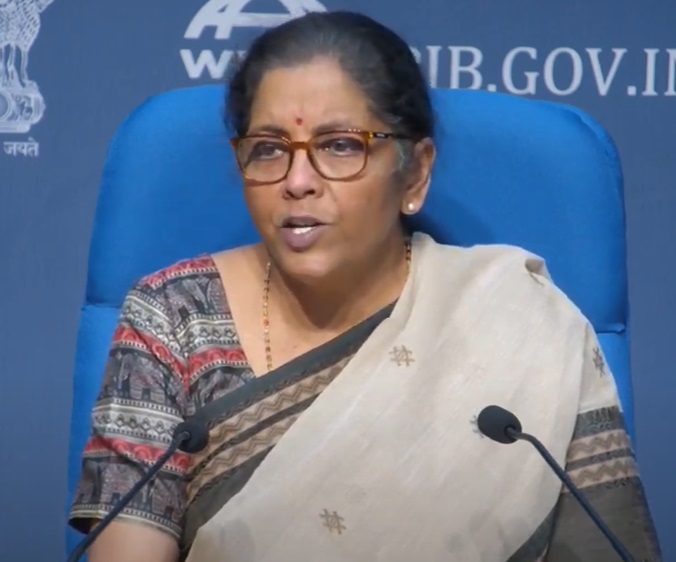NEW DELHI: Finance Minister Nirmala Sitharaman on Saturday said structural reforms will be focus of the fourth tranche of economic stimulus package with an aim to boost growth and create jobs.
In her fourth press conference in as many days, she said the focus of the fourth stimulus would be coal, minerals, defence production, civil aviation sector, power distribution companies in Union Territories, space sector and atomic energy sector.
She said steps taken during the recent past include fast track investment clearance through an empowered group of secretaries.
Project development cell has been set up in each ministry to prepare investable projects and coordinate with investors and central/state government.
States are being ranked on investment attractiveness to compete for new investments, she said adding incentive schemes for the promotion of new champion sectors will be launched in sectors such as solar PV manufacturing and advanced cell battery storage.
As many as 3,376 industrial parts/estates/SEZs in 5 lakh hectares have been mapped on Industrial Information System (IIS).
All industrial parks will be ranked in 2020-21, she said.
Earlier this week, Prime Minister Narendra Modi announced a cumulative package of Rs 20 lakh crore, nearly 10 per cent of GDP, to provide relief to various segments of the economy battered by the nationwide lockdown in the wake of the coronavirus pandemic.
While this included March 27 announcement of Rs 1.7 lakh crore package of free foodgrain and cash to poor for three months and RBI’s Rs 5.6 lakh crore worth of monetary policy since March, the government in three tranches over the last three days announced a cumulative package of Rs 10.73 lakh crore.
The measures announced have largely been about liquidity with negligible extra budget spending.
The three tranches provided for a variety of steps for small businesses, street vendors, farmers and poor migrants as well as shadow banks and electricity distributors, but they have largely been either credit guarantee schemes or new fund creations to be shouldered by banks and financial institutions.
The government cash outgo is limited to a maximum of Rs 18,500 crore on free foodgrain and affordable housing to migrant workers as well as limited tax relief and marginal dole to some companies on employee retiral benefits.
Beginning March 25, India imposed a three-week-long nationwide lockdown, the most far-reaching measure undertaken by any government to curb the spread of the pandemic.
The lockdown, which brought most of the economic activities to a standstill as factories and businesses were shut while rendering thousands temporarily unemployed, has since been extended twice through May 17, with some relaxations to allow resumption of economic activities.
According to estimates, the lockdown may have led to 12.2 crore people losing jobs in April and consumer demand evaporating. (AGENCIES)


